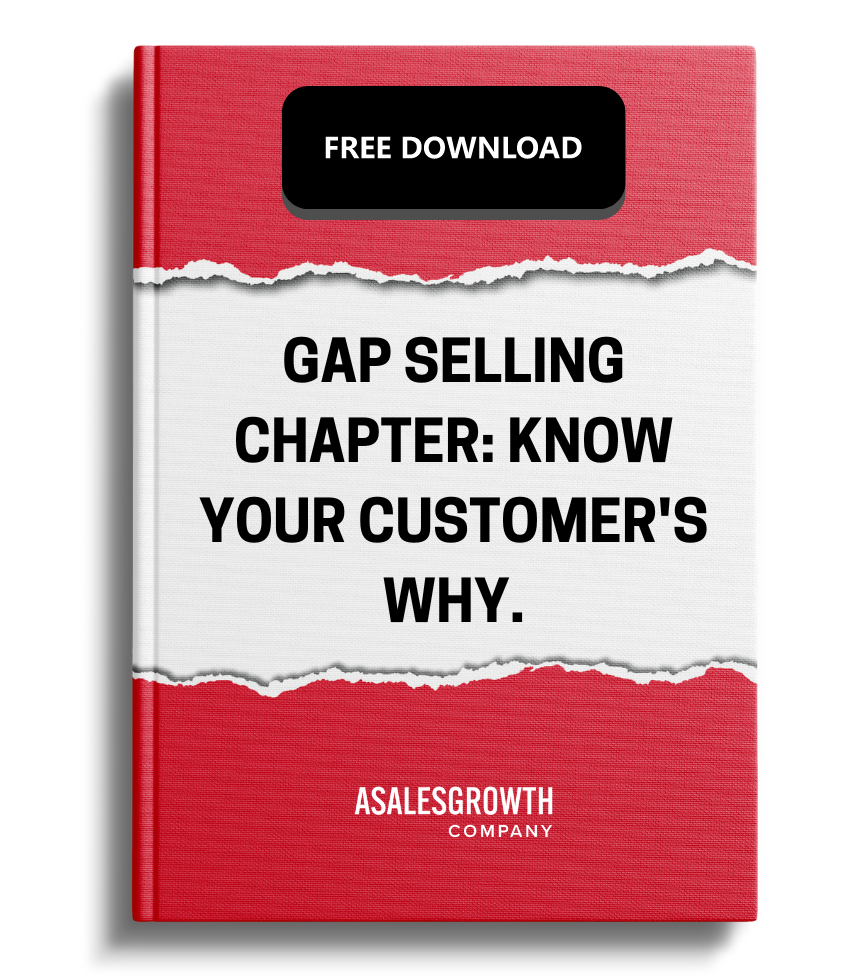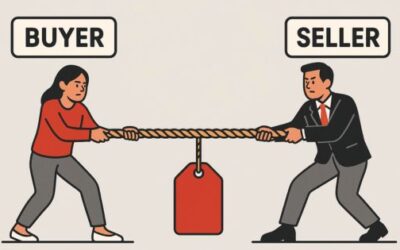As a buyer, have you been in a sales call where a seller keeps asking you what you want but you realize you’re not totally sure? I found myself in this situation way back when I decided to release the audio version of Not Taught.
The owner of one recording studio fired off a series of questions: How many hours did I need? Did I want to record the foreword? How fast do I read? How long would each recording session be?
As the owner – who was also the seller – kept hammering questions I became increasingly frustrated. Why? Because she was making a critical mistake that salespeople make daily.
Stop Asking What the Buyer Wants
This owner kept asking me what I wanted instead of trying to uncover what I was trying to accomplish.
By asking “what do you want” the recording studio owner was giving up control of the sales process. She was making me do the salesperson’s job of identifying the right solution.
Asking buyers to identify their own problems you:
- Assume the buyer fully understands their own needs and requirement. More often than not, buyers don’t understand their goals or how to achieve them.
- Assumes that the buyer who can articulate exactly what they “want” is describing the best solution. Buyer’s don’t have all the necessary information all the time.
- Put this burden on the buyer instead of yourself, who is meant to be the subject matter expert in consultation.
- Reduces the sales process to order taking. Effective selling requires diagnosing, crafting a solution, and guiding the buyer.
Each time you ask what do you want, you kill any chance at understanding the problem the buyer faces. Thus, you can now offer little to no value to the process beyond pricing.
How to Gap Sell This Scenario
Rather than making assumptions that the buyer knows their needs, let’s try this from a Gap Selling perspective. Instead of what do you want, think what are you trying to accomplish. Find the motivation for taking the call.
Finding Customer Goals
For example, had our recording studio owner taken this approach it might have looked something like this:
“Tell me, what are you trying to accomplish with an audiobook version?”
I probably would’ve responded with something around increasing sales, reaching a different audience, or just adding a new product offering.
She could have clarified with questions like:
“Tell me what you’re trying to do.”
“Has your book been published yet?”
“Where is it currently for sale?”
“Why do you want an audio book?”
Crafting Custom Solutions
Asking these questions helps the studio owner to start to uncover the goals of an audiobook and any tough spots along that road.
Maybe audiobooks are new to me or that I’m struggling to gain traction on other channels. Each response gives her better insights into how to position her service as a solution.
The owner could then pivot into the book itself:
“How long is the book – how many words/pages?”
“What are your thoughts on the voice over, you or a professional? Why?”
“Have you ever read in a studio before?”
“Could you read a paragraph from the book?”
Can you see how these questions allow her to make expert recommendations about my specific circumstances? She is now a consultant.
Applying Expertise
Only after a full understanding of the buyer’s objectives can the seller apply their expertise. In my situation, the owner would have the information to make suggestions on possible narrators, or if I was insisting on reading how many hours it would take.
Don’t ask people want they want, ask they what they are trying to do and why.





Well put, too many sales guys take the buyers knowledge for granted.